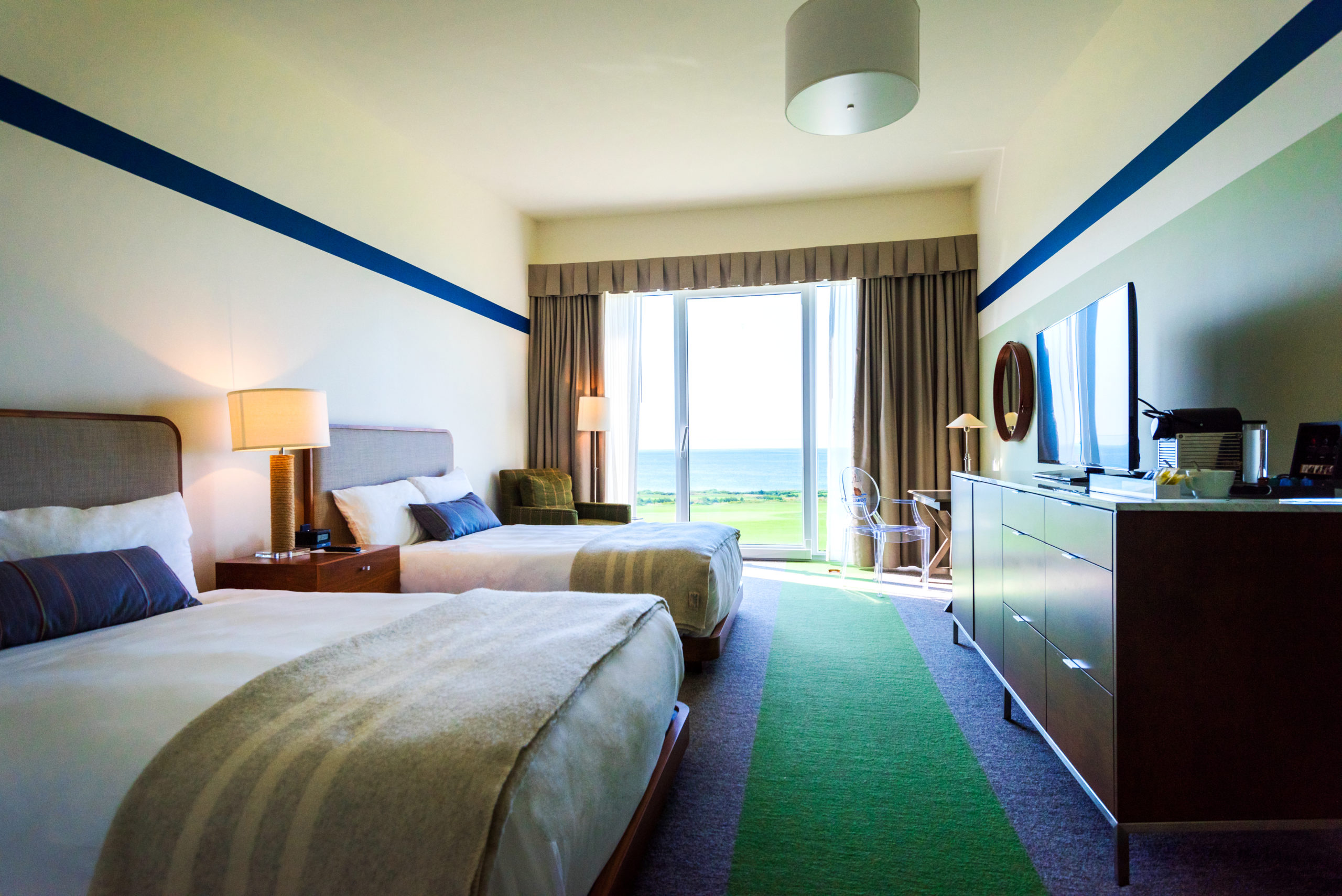News


News
Cape Breton Island Marketing Levy Set at 3%

As of January 1, 2024, the Cape Breton Island Marketing Levy is now set at 3% on all fixed-roof tourist accommodations. This includes short-term rentals like Airbnb, VRBO, etc. that are registered under the Tourist Accommodations Registration Act.
Accommodation operators, please make the necessary adjustments to booking and billing systems to ensure that your business is compliant. Click the link for your municipality below for more information:
- Cape Breton Regional Municipality
- Town of Port Hawkesbury
- Municipality of the County of Victoria
- Municipality of the County of Inverness
- Municipality of the County of Richmond
Frequently Asked Questions About the Marketing Levy (13)
All guests who stay in fixed-roof accommodations must pay the levy, unless they fit into one of the exempted categories. The Marketing Levy is subject to HST. Exemptions may apply.
As of January 2024, the Marketing Levy rate to be charged by accommodation providers is 3% of the purchase price of the accommodation. Please note: the Marketing Levy is NOT exempt from HST, so the Levy must be applied before the tax. The levy is charged on all fixed-roof accommodations and includes short-term rentals like Airbnb, VRBO, etc. that are registered under the Tourist Accommodations Registration Act.
The Marketing Levy applies to ALL fixed-roof, tourism accommodations within the boundaries of the five municipalities on Cape Breton Island, as required to be registered under the Nova Scotia Tourism Accommodation Registration Act. By law, tourist accommodations must register to operate in Nova Scotia if they provide short-term accommodations for 28 days in a row or less. Examples of tourist accommodations that need to be registered include:
- Apartments, condos, houses and vacation homes
- Bed and breakfasts
- Cottages, cabins and tiny homes
- Dormitory-style rooms and hostels
- Hotels, motels and inns
- Resorts
- Rooms (including a room in a home)
- Self-contained secondary suites (like a basement apartment or a loft above a garage)
- Unusual lodgings (like yurts, domes and camping trailers)
For more information, go to:
https://www.novascotia.ca/just/regulations/regs/strentals.htm
A 3% Marketing Levy must be collected on the purchase price of all accommodations.
It’s important that you make clear on any receipt or bill provided to a guest:
- The total cost of the accommodation
- The total amount of Marketing Levy charged to the customer for this accommodation
- Clearly indicate that the Marketing Levy charged is subject to HST
The Marketing Levy should not be charged on exempt purchases, such as meals. If you offer packaged accommodations with meals and other specialized services included, then you must remit the levy on the purchase price of accommodations offered without these specialized inclusions. Please note that the Marketing Levy must be collected regardless of the payment method for accommodations. That is, if the guest pays in cash, installments or otherwise, the levy is still applicable.
Step-by-Step Guide: Adding Occupancy Tax on Airbnb
- Access Your Listing Settings
- Log in to Airbnb and go to Hosting → Listings.
- Click the specific listing you want to update.
- Locate the Taxes Section
- Within the listing editor, click the “More” icon (⋯ or similar).
- Select Taxes from the dropdown menu.
- Add a New Tax
- Scroll to Local tax collection.
- If no tax exists, click Add a tax (otherwise, edit the existing entry).
- Configure Tax Details
Fill in the following on the right-side panel:- Tax type: Choose from the available options.
- Charge type: Typically “percentage by booking.”Business Tax ID: Enter your HST/GST number (e.g., NS HST number).
- Accommodations Tax Reg. #: As required by Nova Scotia or your region.Long-term stay exemption:
- Select Yes if you exempt stays over a certain number of days.Enter the threshold (e.g., 30 days for Nova Scotia).
- Review and agree to Airbnb’s terms.
- Save Your Changes
- Click Save to finalize the setup.
Reference Airbnb’s Guide for additional details: https://www.airbnb.ca/help/article/1036
Yes. Cleaning fees are part of the purchase price and, as such, are subject to the levy.
CheckIn Analytics has been retained by Destination Cape Breton and our municipal partners to provide a more simplified levy reporting process for accommodations (moving from pen and paper to digital).
Reporting is to be submitted through CheckIn Analytics and payment to your designated municipality.
For assistance, reach to
A database of accommodations required to remit is held by each municipality on Cape Breton Island. A failure to remit on time may result in interest accumulated on overdue remittances. The interest charged to overdue remittances is 4% above the prime rate. Additionally, a failure to remit may also result in a municipal conviction. A first conviction includes a fine that falls between $500 – $1,000, and a second subsequent conviction includes a fine that falls between $1,500 and $5,000.
You are required to maintain records of accounts and documents that can show sales of accommodation (exempt and non-exempt), levy collected and remittance. These records must be kept for 6 years and each municipality has the right to inspect or audit these records with written notice.
Short-term rentals operating in Nova Scotia are required to register with the Province. You must have a valid 2025-26 registration to post listings and take bookings. When you register, you will be required to provide proof of compliance with municipal land use bylaws and, depending on the type of accommodation, you may be required to provide proof of primary residence, permission from property owner, and/or confirmation from the condominium board that the bylaws do not prevent a short-term accommodation rental. If you have any questions about registering your accommodation, please contact the Short-term Rentals Registry at 902-424-5200 or by visiting beta.novascotia.ca/register-your-short-term-accommodation
CheckIn Analytics has been retained by Destination Cape Breton and our municipal partners to provide a more simplified levy reporting process for accommodations (moving from pen and paper to digital). CheckIn Analytics is here to assist you if you need technical help with the platform such as logging into your account or if you have technical issues remitting reports. For technical assistance, you can reach them by email at .
The following are exemptions to the Marketing Levy:
- Accommodations with prices set at $20 or less per night stay.
- A student residence of a post-secondary educational institution.
- Any person staying within an accommodation for more than 30 consecutive days.
- Any person being accommodated while a person or family member is receiving medical treatment or advice in a hospital within their municipality.
- Any person being accommodated while a person or the person’s family has been temporarily displaced from their home due to a natural disaster, including a high wind event, flood event, fire or other naturally occurring damaging event.
Yes. The 3% is subject to HST. However, the HST is not paid to your municipality. Please remit your HST as per usual to Revenue Canada.
For example, if your accommodation costs $200 per night, plus a three percent marketing levy ($6), plus 14 percent HST ($28.84), the total cost to the consumer would be $236.90 per night. You would remit $6 to your municipality and $28.84 to Revenue Canada.
Step 1: Register with the Province (link)
Once approved, you’ll receive a registration number that’s required to advertise your property. Some exemptions may apply.
Step 2: Submit the Accommodation Form for Destination Cape Breton’s website listing
Step 3: Register with CheckIn Analytics for levy reporting
Step 4: Specific to Inverness County: Marketing Levy Registration with Inverness County
This will provide you with a unique # for remitting payments to the municipality. The municipality accepts online banking, in-person and mail options.
IN OTHER NEWS...
